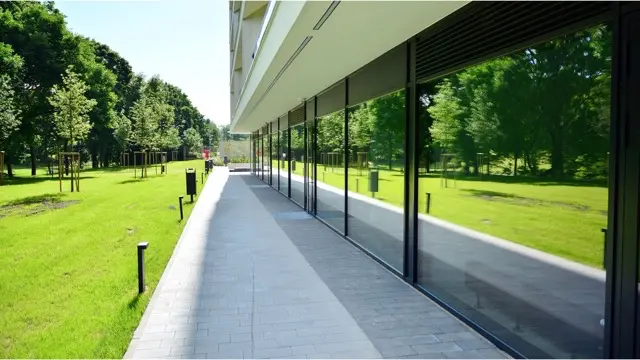It is increasingly frequent to find real estate that is dismembered between bare ownership and usufruct.
What happens if you want to sell this type of goods?
In this article we will give an example of how to tax the sale of a premises with bare ownership.
When selling a place that is rented, it often happens that the place is dismembered between several owners: some with full ownership, and others with usufruct and another with bare ownership.
How is the sale of a premises taxed for VAT?
Property dismembered between bare property and usufruct
What does dismember mean?
Dismember signica divide or separate something
There are several owners of the premises
It is very common that, after a death, the property of the properties that are inherited is dismembered, so that there are relatives who remain the usufruct (usually the spouse) and others the bare property.
In this case, it often happens that, for the same property or premises, there are owners who have full ownership, others part of the usufruct and others part of the bare property.
In the event that the property is a premises or a warehouse that is being leased,
How should each owner be taxed for VAT purposes if they decide to sell it?
Example 1 of dismembered property
This can occur, for example, in the case of a rented industrial building that was owned by two brothers (in full ownership) and that, when one of them died, he left the usufruct of his part to his spouse and the bare property to a child.
Well, if the three agree to transmit the ship, the VAT taxation of each one will be different. See it below.
Taxation for VAT
Owner with full ownership
For the owner who owns full ownership of part of the property (in the example, the brother), the sale of that part will have the character of a second transmission of a property (given that it is used).
It is for this reason and as a general rule, the sale of its part of full ownership will be subject and exempt from VAT, and the acquirer must be taxed by ITP-TPO.
However, since said owner considers himself an entrepreneur for VAT purposes (since he reflects VAT for the rental of his part of the warehouse), he has the option of waiving the VAT exemption, so that the transmission is taxed by said tax, and not by ITP-TPO.
Waiver of VAT exemption
Do not forget that to waive the VAT exemption, the buyer has to buy the premises for the exercise of his active and must have the right to deduct the VAT incurred by the purchase of the premises or, at least, part of it.
If there is a waiver, the seller must not pass it on; it is the purchaser who is obliged to pass on the tax himself.
This is called the taxable person inversion rule.
As a tax for VAT but you should not pay the VAT because if you self-report it you will pay less taxes.
Of course, you will have to pay AJD, 1.56 in the Valencian community. 2% in the region of Murcia,
Do you want to pay less taxes?
You may be interested in our article on the taxable person’s inversion rule
Nude property of the premises
In the case of the owner’s knot (the son), the treatment of the sale is different: it is the one who has the usufruct who rents, and not the one who has the bare property.
Thus, unless the latter acts as an entrepreneur (this will happen if he rents other premises), the sale on his part will not be subject to VAT.
Therefore, the acquirer must pay ITP-TPO for the part of the bare property acquired, without it being possible to waive the exemption.
Usufruct of the premises
Finally, with respect to the part of the usufructuary (the spouse), since what he transmits is a real right of enjoyment and enjoyment (it is not, therefore, a second delivery of real estate) and said transmission is made by an entrepreneur (since he is the one who rents and not the owner node), it is subject and not exempt from VAT.
Note that, in this case, the purchase is taxed by VAT without the need for the buyer to waive the exemption.
Example of how the bare property and usufruct of a place is taxed
Continuing with the example, if the warehouse is sold for one million euros and the usufructuary is 65 years old (therefore, his usufruct represents 24% and the bare ownership of the son, 76%):
| Sale | Taxation by VAT |
| Brother: half full ownership | The acquirer self-repercises 105,000 euros of VAT (500,000 × 21%) (1) |
| Son: bare property (76% of the other half) | Exempt from VAT (the acquirer pays ITP-TPO on 380,000) |
| Spouse: usufruct (24% of the other half) | The spouse must pass on 25,200 euros of VAT (120,000 × 21%) |
There is a waiver of the exemption.
If it did not exist, the acquirer would have to fulfil ITP-TPO over 500,000 euros.
The sale of the usufruct is subject to VAT in any case. The sale of full ownership is also subject to that tax if there is a waiver of the exemption. The transmission of the bare property is not subject to VAT, unless the seller is an entrepreneur.




